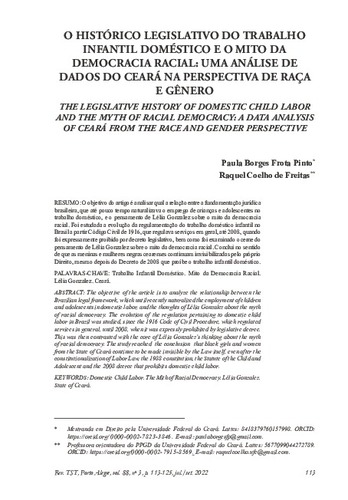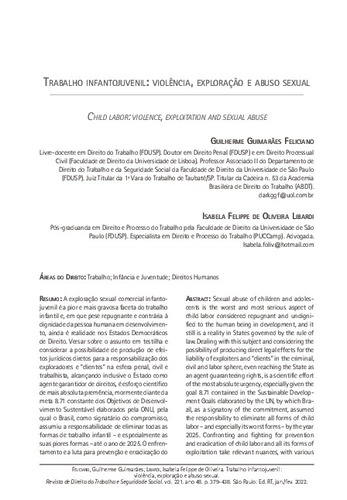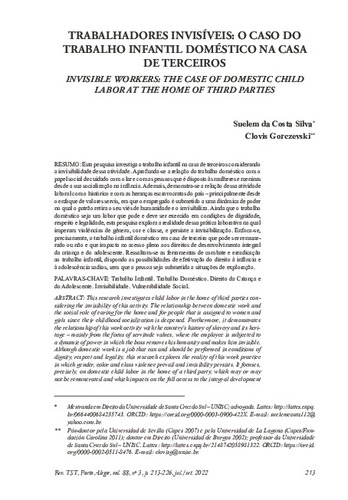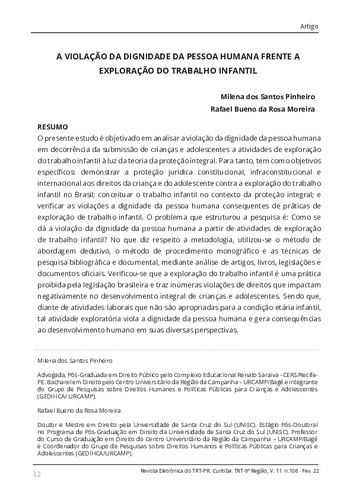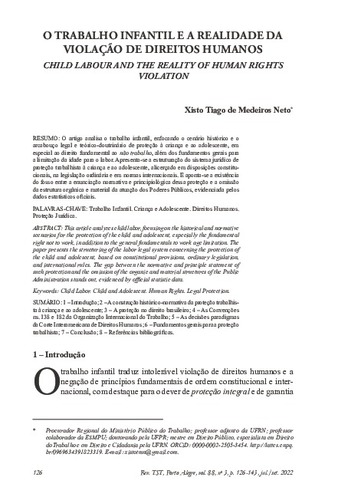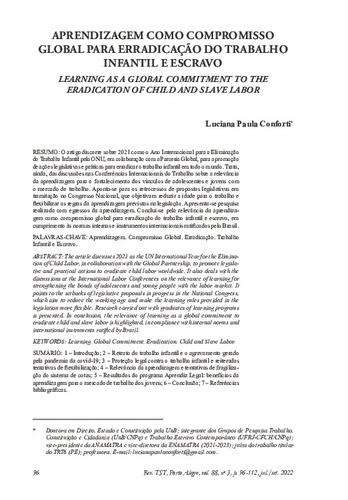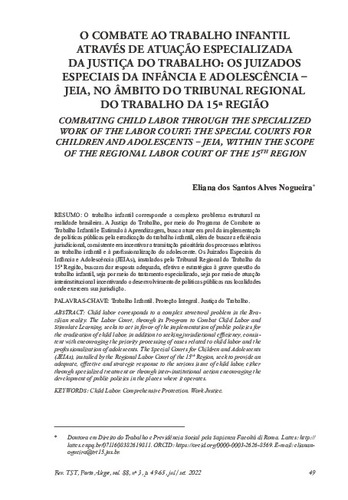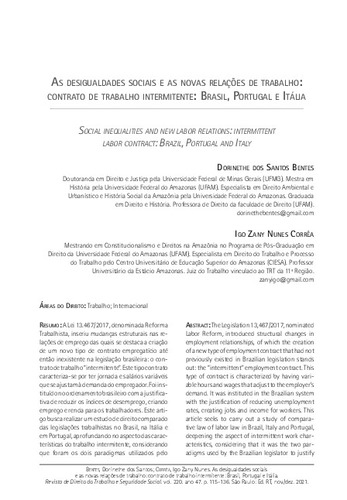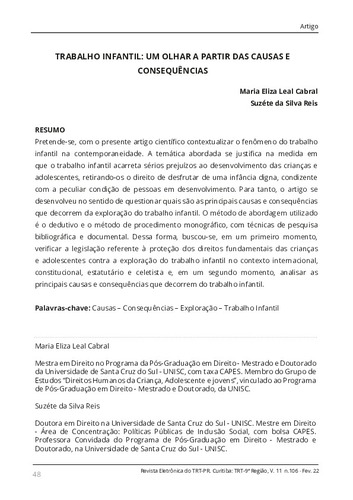Artigo de periódico
O histórico legislativo do trabalho infantil doméstico e o mito da democracia racial: uma análise de dados do Ceará na perspectiva de raça e gênero
| dc.contributor.author | Pinto, Paula Borges Frota | |
| dc.contributor.author | Freitas, Raquel Coelho de | |
| dc.date.accessioned | 2022-10-21T20:18:00Z | |
| dc.date.available | 2022-10-21T20:18:00Z | |
| dc.date.issued | 2022-09 | |
| dc.identifier.citation | PINTO, Paula Borges Frota; FREITAS, Raquel Coelho de. O histórico legislativo do trabalho infantil doméstico e o mito da democracia racial: uma análise de dados do Ceará na perspectiva de raça e gênero = The legislative history of domestic child labor and the myth of racial democracy: a data analysis of Ceará from the race and gender perspective. Revista do Tribunal Superior do Trabalho, São Paulo, v. 88, n. 3, p. 113-125, jul./set. 2022. | pt_BR |
| dc.identifier.uri | https://hdl.handle.net/20.500.12178/208314 | |
| dc.description.abstract | [por] Analisa qual a relação entre a fundamentação jurídica brasileira, que até pouco tempo naturalizava o emprego de crianças e adolescentes no trabalho doméstico, e o pensamento de Lélia Gonzalez sobre o mito da democracia racial. Foi estudada a evolução da regulamentação do trabalho doméstico infantil no Brasil a partir Código Civil de 1916, que regulava serviços em geral, até 2008, quando foi expressamente proibido por decreto legislativo, bem como foi examinado o cerne do pensamento de Lélia Gonzalez sobre o mito da democracia racial. Conclui no sentido de que as meninas e mulheres negras cearenses continuam invisibilizadas pelo próprio Direito, mesmo depois do Decreto de 2008 que proíbe o trabalho infantil doméstico. | pt_BR |
| dc.description.abstract | [eng] The objective of the article is to analyze the relationship between the Brazilian legal framework, which until recently naturalized the employment of children and adolescents in domestic labor, and the thoughts of Lélia Gonzalez about the myth of racial democracy. The evolution of the regulation pertaining to domestic child labor in Brazil was studied, since the 1916 Code of Civil Procedure, which regulated services in general, until 2008, when it was expressly prohibited by legislative decree. This was then contrasted with the core of Lélia Gonzalez’s thinking about the myth of racial democracy. The study reached the conclusion that black girls and women from the State of Ceará continue to be made invisible by the Law itself, even after the constitutionalization of Labor Law, the 1988 constitution, the Statute of the Child and Adolescent and the 2008 decree that prohibits domestic child labor. | pt_BR |
| dc.description.tableofcontents | Histórico legislativo do trabalho infantil doméstico no Brasil -- O mito da democracia racial no Brasil | pt_BR |
| dc.language.iso | pt_BR | pt_BR |
| dc.relation.ispartof | Revista do Tribunal Superior do Trabalho: vol. 88, n. 3 (jul./set. 2022) | pt_BR |
| dc.subject | Gonzalez, Lélia, 1935-1994, crítica e interpretação | pt_BR |
| dc.subject | Trabalho infantil, Brasil | pt_BR |
| dc.subject | Trabalho doméstico, Brasil | pt_BR |
| dc.subject | Trabalho infantil, legislação, história, Brasil | pt_BR |
| dc.subject | Racismo, Brasil | pt_BR |
| dc.subject | Trabalho infantil, Ceará | pt_BR |
| dc.title | O histórico legislativo do trabalho infantil doméstico e o mito da democracia racial: uma análise de dados do Ceará na perspectiva de raça e gênero | pt_BR |
| dc.title.alternative | The legislative history of domestic child labor and the myth of racial democracy: a data analysis of Ceará from the race and gender perspective | pt_BR |
| dc.type.genre | Artigo de periódico | pt_BR |
| dc.identifier.rvbisys | 001226124 | |
| dc.relation.ispartoflink | https://hdl.handle.net/20.500.12178/208254 | pt_BR |
This item appears in the following Collection(s)
-
Artigos9527


